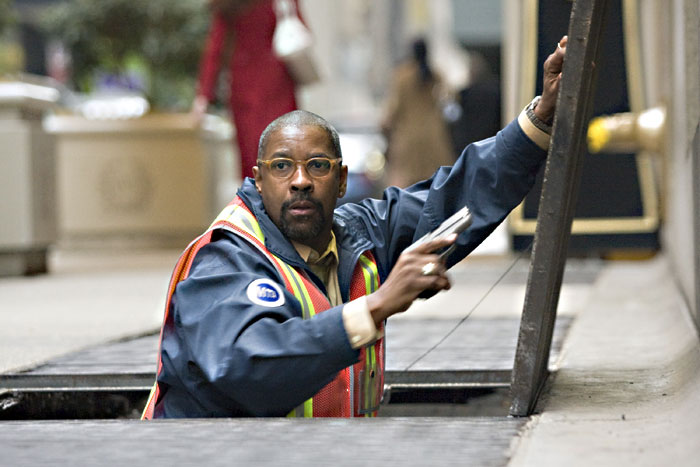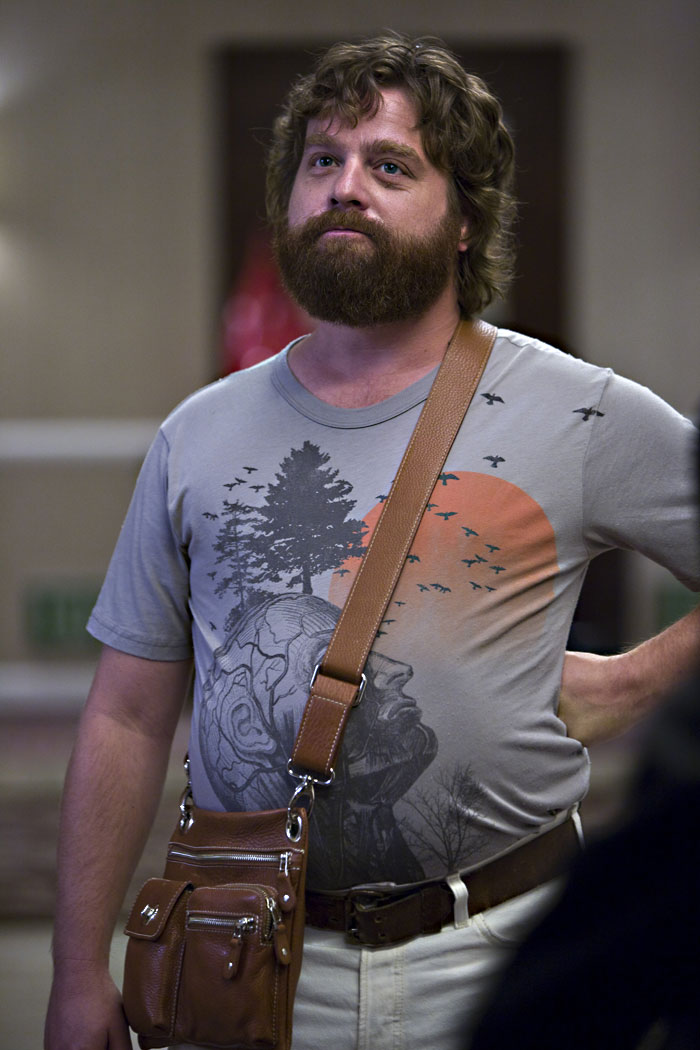Time perhaps scrambling it’s for Alejandro González Iñárritu to stop his narratives. After making an exciting debut in 2000 with Amores Perros—a movie whose gimmicky Tarantino-esque tinkering with structure seemed fresher en español and grounded in gritty Mexico City location shooting—González Iñárritu apparently decided to devote his feature-film career to telling multipart stories in initially disconnected fragments. In theory, it’s an ambitious gambit: a method that can cut off a viewer’s dependence on narrative bottle-feeding.
In practice—at least in Babel, González Iñárritu’s schematic new tract on the world’s ills—it’s like Crash rewritten by Yoda. The cheap ironies and rigged coincidences remain, only shuffled in sequence to produce easy mystification and a succession of late-film whammies. It’s conspiracy theory masquerading as humanism.
Taking a cue from the wrathful God of Genesis, Babel scatters its tapestry of thwarted communication to the opposite ends of the earth. In hardscrabble wilderness, a Moroccan goatherder sends his young sons (Said Tarchani and Boubker Ait El Caid) out to guard the flock, armed with a high-powered rifle.
A world away, in a ritzy San Diego home, a phone call strands Amelia (Adriana Barraza), a conscientious nanny and off-the-books illegal, with her privileged charges (Elle Fanning and Nathan Gamble) just before she’s to leave for her son’s wedding in Tijuana. A cut away, married Richard (Brad Pitt) and Susan (Cate Blanchett) sit in brittle discomfort at a Moroccan cafe, cut off from each other by recent tragedy. In the most intriguingly extraneous plot thread, deaf-mute Tokyo teen Chieko (Rinto Kikuchi) seethes with fury at her classmates and widowed dad (Koji Yakusho), masking her misery with bursts of exhibitionist bravado.
Even after a fateful potshot violently intersects Richard and Susan’s story with the goatherders’, Babel keeps the entwined import of its four subplots compellingly vague for at least an hour. A more surefooted exploration of fragmentary storytelling in its early scenes than either Amores Perros or its follow-up, the fatally overwrought 21 Grams, the movie tantalizes with the possibility that for once González Iñárritu and his longtime screenwriter, Guillermo Arriaga, won’t feel the need to connect every strand—that they’ll allow some of life’s actual messiness to scuff their carefully faked disorder. Two bravura sequences—a boisterous idyll at the Tijuana wedding celebration, filtered through the Anglo kids’ exhilarating confusion, and Chieko’s ambient prowl through a dance club’s muffled beats-per-minute murk— have an immersive texture unlike anything González Iñárritu has dared: a sense of human beings’ complex interaction with a world of often contradictory stimuli.
Alas, they’re also unlike anything else in Babel, which stacks contrivance upon contrivance as it trip-wires and time-shifts a series of climactic calamities to unfold almost in unison. The director and screenwriter mean to show the butterfly effects of American arrogance and post-9/11 solipsism. Thus, wealthy Californians Pitt and Blanchett turn their life-or-death dilemma into an international cause célèbre, other tourists or citizens be damned, while the sweet blond children end up in a Border Patrol wasteland. The Americans’ linguistic helplessness becomes a dully literal metaphor for I-stand-alone isolationism.
Meanwhile, antiterrorist hysteria places the Moroccan lads and their guiltless family in crosshairs. Only the lives of Americans matter: The filmmakers expect you to feel guilty when the white kids survive.
Puzzle master Arriaga may be the Will Shortz of globalized hand-wringing, but the by-now-predictable jigsawing of his scripts reeks of desperation. Babel offers only ham-handed determinism—the inevitable outcomes not of imperialist indifference but of a screenwriter’s (one) trick bag. The pieces of the story are just a booby trap snapping into place. Amelia, therefore, will have to do the most impractical thing possible whenever she’s confronted by authorities, to fulfill her conception as a martyr; a ne’er-do-well nephew (Gael García Bernal) is trumped up to ensure she makes all the wrong choices. The movie’s characters don’t have any rights, but it ain’t Uncle Sam who took them away.
Still, cinematographer Rodrigo Prieto seeks out particulars of light, texture, and location that go beyond mere tourism. And the actors bring some warmth and empathy to their narrowly conceived roles: Tarchani and Ait El Caid, affecting in their quaking transformation from bored kids to wanted men; Barraza, a terrified runner in deepening quicksand; Pitt and Blanchett, appealing even when their star power is used for ugly-American self-incrimination. In the end, though, they’re simply dots to be connected in a cosmic game of Six Degrees of Kevin Bacon. Deserve better they all.








